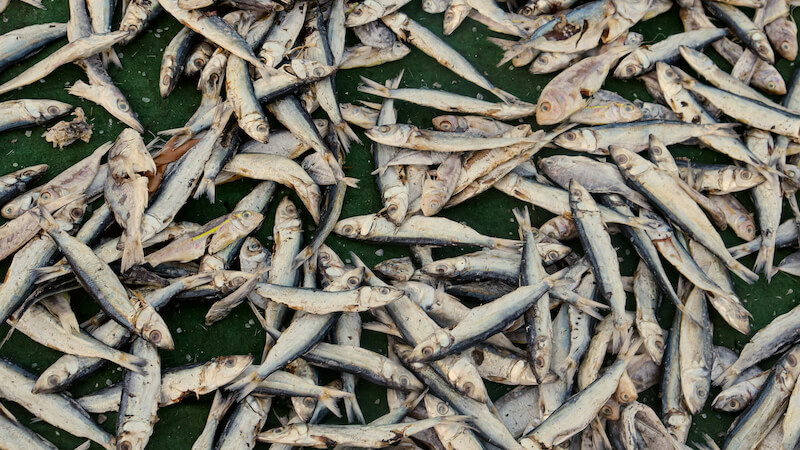Artificial intelligence and new analysis methods could help to reduce illegal fishing in the medium term. This should minimize economic damage and overfishing.
Illegal fishing is considered damaging to the economy. However, such and similar practices not only tear massive holes in state coffers, but also destroy entire ecosystems. Illegal or unregulated fishing is one example that has now developed into a global problem.
Current calculations assume that up to 26 million tons of fish are caught in uncontrolled conditions every year. This corresponds to a fifth of the global catch. According to the UN Food and Agriculture Organization (FAO), this black market is worth up to 23 billion US dollars.
However, in addition to the financial losses, these practices also contribute significantly to overfishing. As a result, a third of the world’s fish stocks are being fished beyond biologically sustainable limits. The population of bluefin tuna is now only about 2.6 percent of its original size.
Artificial intelligence to detect illegal fishing by satellite
The Global Fishing Watch organization could take up the fight against illegal activities on the seas in the future. Google, the marine conservation organization Oceana and the environmental group SkyTruth are among the founding members. They rely on AI software and satellite images to map the movements of more than 65,000 commercial fishing vessels worldwide.
The AI analyzes several million gigabytes of satellite images to identify ships and offshore infrastructure. The system then checks publicly available data from ship AIS (Automatic Identification System) signals and combines these with radar and optical images. This helps to identify ships that are not transmitting their positions.
Another project by the University of Southampton and local company RS Aqua is taking a different approach. It aims to detect fishing activity in real time with the help of an underwater robot that uses underwater sensors and AI. The AI is trained to distinguish between natural ocean sounds and the sounds of fishing trawlers operating in protected waters.
Anyone can join the fight against illegal fishing
The International Coalition of Fisheries describes illegal fishing as a curse of the industry that not only causes considerable ecological and economic damage, but also jeopardizes the sustainability of the fishing industry. Experts therefore see the possible use of AI as an ideal way to supplement traditional law enforcement measures.
Ultimately, however, it is also the consumers who decide. By actively making sustainable choices and only using products with recognized seals and certifications, each of us can make illegal fishing more difficult. Products from illegal fishing are often hidden in cheap, unverified packaging.










